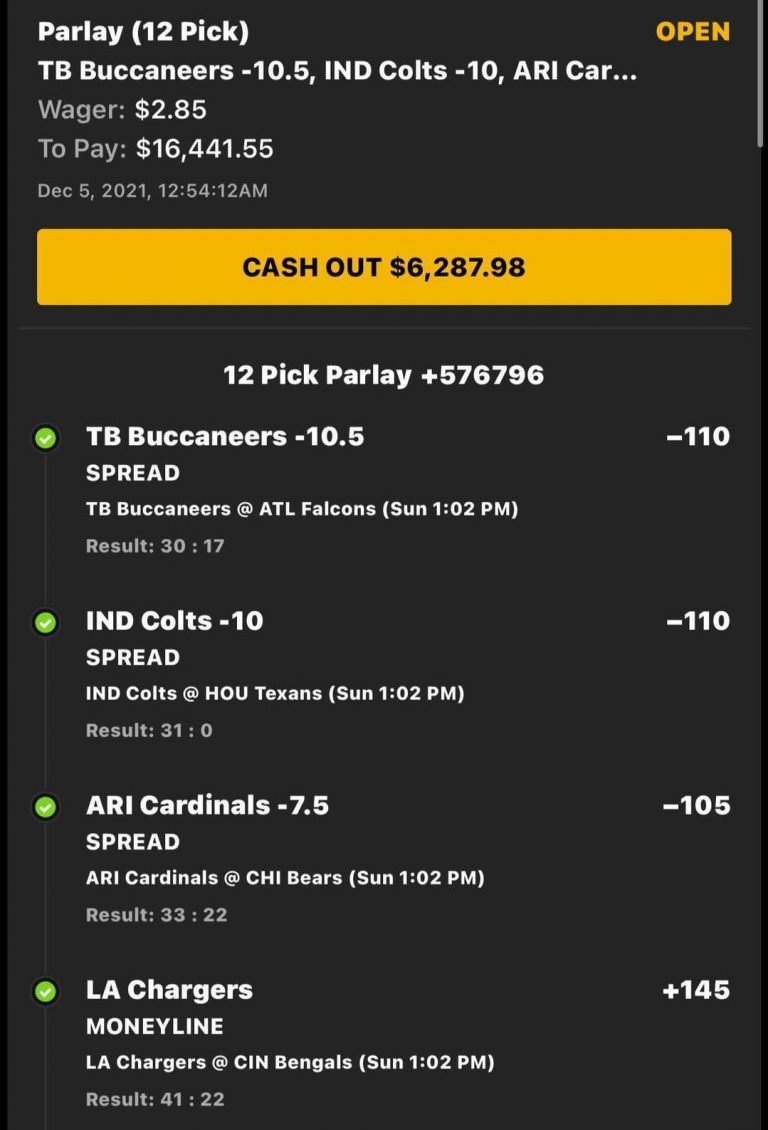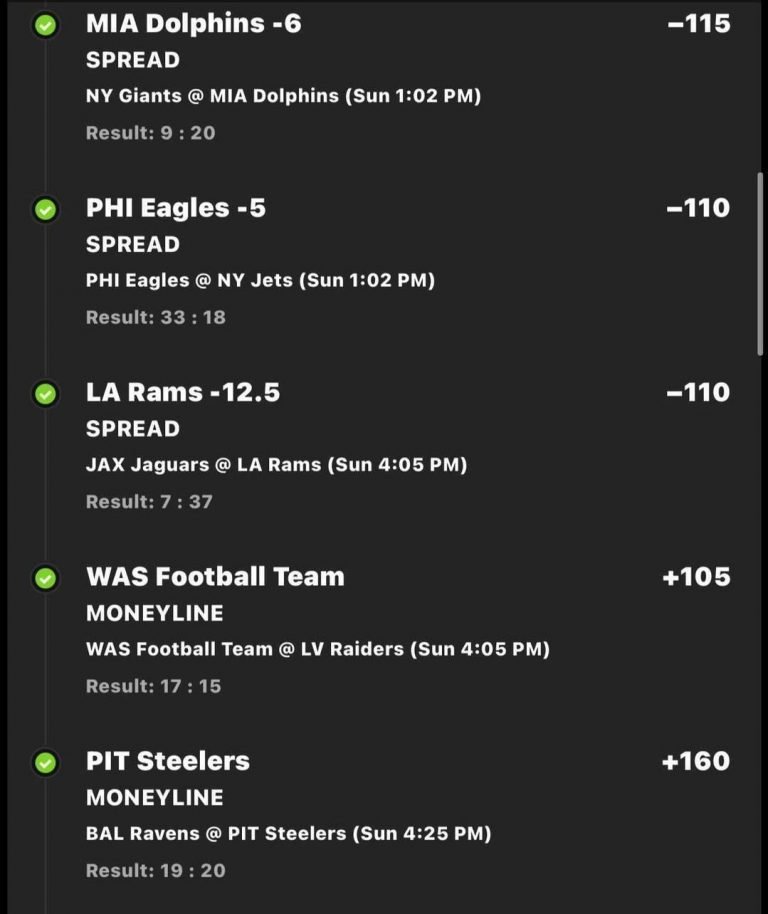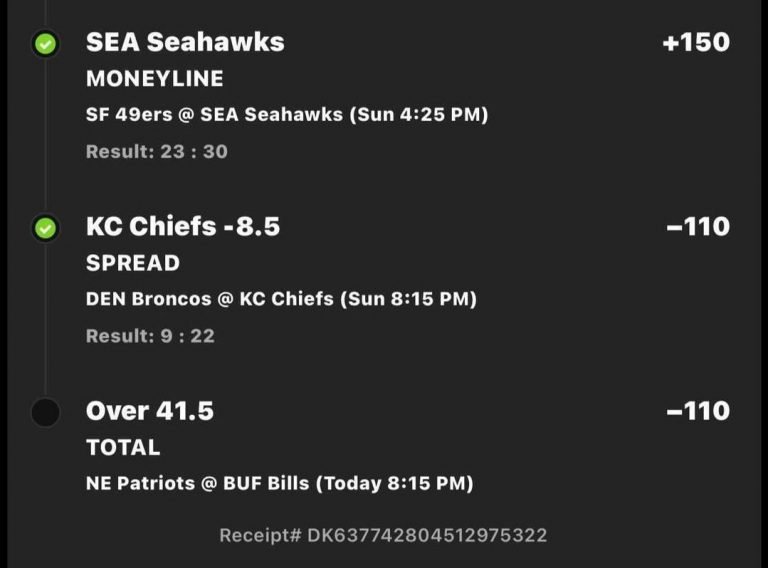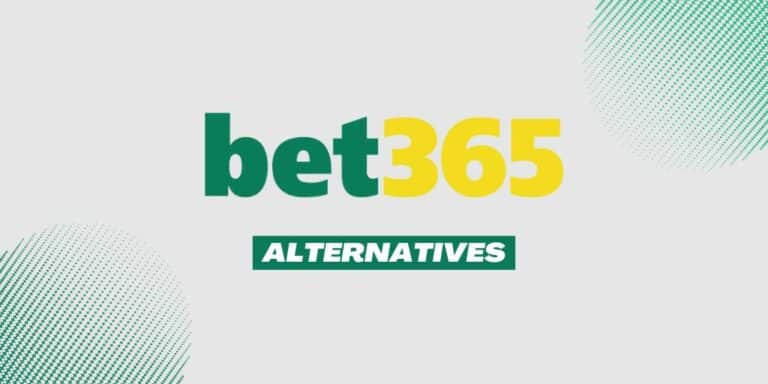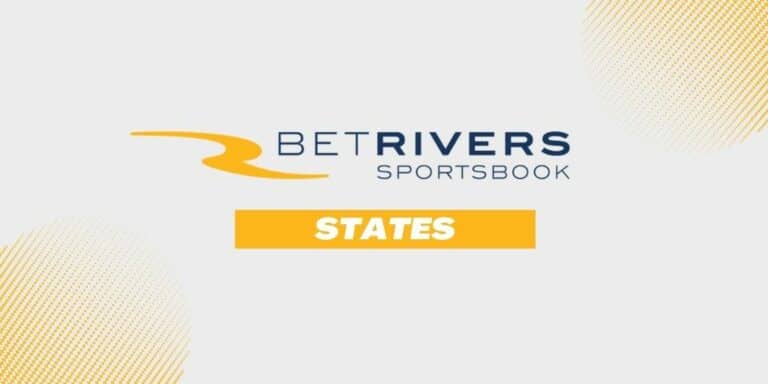Companies featured on this page may be our partners who compensate us if you sign up for one through our links. This doesn't affect our ratings or opinions in any way. Must be 21+. Gambling Problem? Call 1-800-GAMBLER. See full disclosure.
What Does it Mean to Hedge Your Bets?
Hedge betting is an advanced sports betting strategy that involves placing one or multiple wagers on the opposite side of your initial bet. The goal is to lock in a guaranteed profit, break even, or at least minimize your losses.
If you placed a 5-team parlay and the first 4 legs already hit, for example, you may consider hedging your parlay by placing a bet against the team you have winning the last leg. That way, no matter the result of the game, you win some money.
Similar to middling and arbitrage betting, hedge betting is a cover-all-the-bases approach to protect your original wager and ensure you score at least some kind of win, regardless of how the game plays out.
Bettors most commonly hedge futures bets when their team clinches a spot in the championship game, like the Super Bowl in the NFL or the World Series in the MLB. In such instances, betting on the opposing side would guarantee a profit, no matter the outcome.
This risk management method is also used to secure winnings on parlays that are one leg away from cashing. In both cases, the trade-off is a smaller return if your initial bet wins since you’re betting against it.
Offers from our partners
Examples of Hedging Your Bets
Let’s go through a few examples that will help you understand the concept of hedge betting.
Hedging a Futures Bet
Say you’ve placed a $100 futures bet on the Chiefs at +600 to win the Super Bowl during the regular season. Fast forward to February, prior to the Super Bowl that they’re now playing in where they’re -150 favorites against the Buccaneers, which are listed at +130.
If the Chiefs win the title, you’re up $600. Otherwise, you lose $100.
You have two options—either you do nothing and let your original bet play out, or you hedge it by taking the Buccaneers to win on the moneyline (or with the spread since they’re underdogs).
If you decide to protect your initial pick and bet on the Buccaneers to win, the hedge amount that would maximize your guaranteed profit would be $280 (as per our hedging calculator).
In this scenario, the total bet amount would be $380 ($100 on the initial bet + $280 on the hedge bet). If the Buccaneers win, you will net a $320 profit ($700 – $380). If the Chiefs prevail, you’ll win the same $320 ($700 – $380).
You also have the option of hedging a lesser amount on the Bucs—say $150—if you still think the Chiefs will win. In this case, you would win $450 if the Chiefs win ($700 payout – $250 wagered) and $125 if the Bucs win ($375 payout – $250 wagered).
Hedging a Parlay
Now, let’s take a look at an example of hedging a parlay bet.
Let’s assume you’ve bet $100 on a 6-leg NBA parlay bet. At +500 odds, you stand to earn a hefty $500 profit if all your picks hit.
You’ve nailed the first 5 legs and the last game (Knicks vs. Lakers) starts later. In your parlay, you got the Lakers to win outright, but you’re not feeling great about their chances.
You could ride out the +500 and hope the Lakers win, or you can place a hedge bet on the Knicks at -130 and see some kind of a profit, regardless of which team wins the game.
If you take the safe route, the optimal hedging amount would be $339.13. The potential win has plummeted from $500 to $160.87, but the latter amount is guaranteed whereas you only get the $500 if the Lakers pull out the win.
Just like in the first example, you may choose to hedge a lower amount—say $200—on the Knicks if you still think the Lakers will win or want to root for them. In this case, you would profit $300 if the Lakers win ($600 payout – $300 wagered) and $53.85 if the Knicks win ($353.85 payout – $300 wagered).
Hedging Based on Line Movement
Let’s take a look at one more quick example of hedging based on line movement. In this scenario, you bet $100 on the Falcons to beat the Buccaneers at +300 odds.
Just before kickoff, after you’ve placed your bet, the Bucs announce that Tom Brady is out for the game, and the lines subsequently shift to Falcons -105 and Bucs -115.
In this case, you could bet $213.95 on the Bucs at -115 to guarantee yourself a profit of $86.05 regardless of the outcome ($400 payout in either scenario minus $313.95 bet in total).
When Does Hedging Your Bet Make Sense?
The decision on whether or not a bettor should hedge is highly circumstantial and depends on a number of factors—most notably, the implied probability and how risk-averse you are.
Using Implied Probability to Determine if You Should Hedge
This percentage shows what the chances of an outcome occurring are according to the betting odds.
If you believe the likelihood of the bet coming through is higher than the implied probability, then the wager is a good value, and you should let it ride. Otherwise, it’s probably a good idea to hedge and reduce bankroll exposure.
The implied odds represent a conversion of odds into percentages while taking into account the sportsbook’s vig. For example, a bet with the odds of +200 has the implied probability of 33.33%, which indicates that it’s expected to win in one out of three attempts.
You can use our implied probability calculator to calculate the implied odds of your wager and determine whether hedging makes sense.
Determining Whether to Hedge Based on How Risk-Averse You Are
If you hate the idea of missing out on a big payout because of a single game, hedging your bet is a good way to guarantee yourself some profit.
If the profit you could make by hedging your bet is significant to you, then it may be worthwhile to guarantee yourself the profit instead of walking away with nothing.
If you have a 10-leg longshot parlay that is going to pay you $100k if it ends up winning, for example, but you could hedge your bet and guarantee yourself $60k, that may be a life-changing amount of money that you can’t pass up, even if it means you may end up winning less than you could have.
A Note on Cashing Out
Almost every sportsbook now allows you to cash out of bets early for a reduced payout. Here’s an example from DraftKings Sportsbook on a 12-team parlay in which in the first 11 legs have already won (click images to expand):
As you can see, DraftKings is offering this bettor a $6,288 cash out option on a bet that would pay out $16,442 if it wins.
Assuming the odds on the final leg haven’t changed, the hedge bet odds would be -110 (since the standard line on spreads and totals is -110 and that leg of the parlay has odds of -110).
Instead of cashing out for $6,288, this bettor could hedge his or her bet by placing $8,615 on Under 41.5 in the Patriots and Bills game—guaranteeing themselves a profit of $7,826.
While this is clearly the better option, you also would need to have $8,615 free to deposit into your sportsbook account (or would already have to have that much in your account).
Before ever cashing out of any bet, be sure to check out how much you could win by hedging your bet instead. In most cases, hedging your bet is a better option than cashing out.
How to Hedge a Bet
The basic premise behind hedge betting is placing a second wager against your initial one. There are several variants of hedge bets. Here’s an example of hedging a futures bet with fictitious wagering amounts (which are optional):
- You placed $100 on the Chiefs to win the Super Bowl at +600 when your sportsbook released the NFL outright winner odds.
- The Chiefs have stormed through the playoffs and reached the Finals. They’re up against the Buccaneers, which are listed at +130 on the moneyline.
- You decide to hedge your bet just to be on the safe side. According to our hedge betting calculator, the best course of action would be to bet $304 on the Bucs moneyline. That way, you’re guaranteed a $296 ($700) payout, regardless of which team wins the Big Game.
It’s important to note that you don’t have to hedge your bet in a way that would give you an equal payout on both sides. You can do it so that you receive a bigger payout if your original bet wins (or vice-versa) but still lock up some profit if the hedge bet comes through.
Piggybacking on our example above, you could bet $150 on the Bucs instead of $304. In this scenario, you would walk away with $95 if the Buccaneers win or $450 if the Chiefs win.
Types of Hedge Bets
Hedge betting can be used in different types of bets, sports, and situations. We’ll take you through some of the most common approaches below:
- Hedging a parlay: This is when a bettor places a hedge bet on the final game of a parlay to protect their last leg. Understandably, most bettors would like to see some kind of a profit from a wager that close to the finish line.
- Hedging futures bets: Most often, bettors hedge their futures bets when the team they’ve wagered on advances to the Finals. Backing the opposing side would ensure that you lock up a profit.
- Hedging through in-play bets: With in-play or live hedge bets, you’re wagering against your original picks when the game isn’t developing the way you anticipated it would. You can limit your losses by betting on the opposite side of your bet if you don’t think it’s going to hit.
- Hedging due to injuries, weather, or other news: Maybe a superstar that plays for the team you’ve bet on got injured or the coach got fired a few hours before the tipoff. These kinds of factors would most likely alter your perception of the event outcome, so hedging can either help you guarantee yourself profit (such as if the line moved in your favor such as from +300 initially to -120) or limit your downside (such as if the line moved against you such as from -120 to +300 due to an injury).
>> Read More: Sports Betting Tips to Help You Win More

